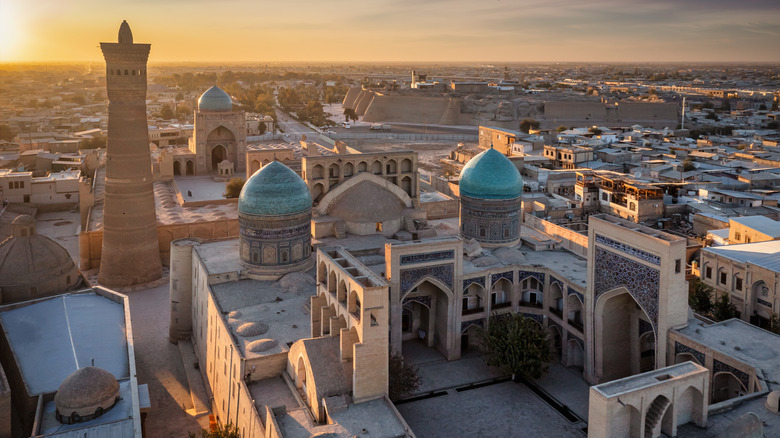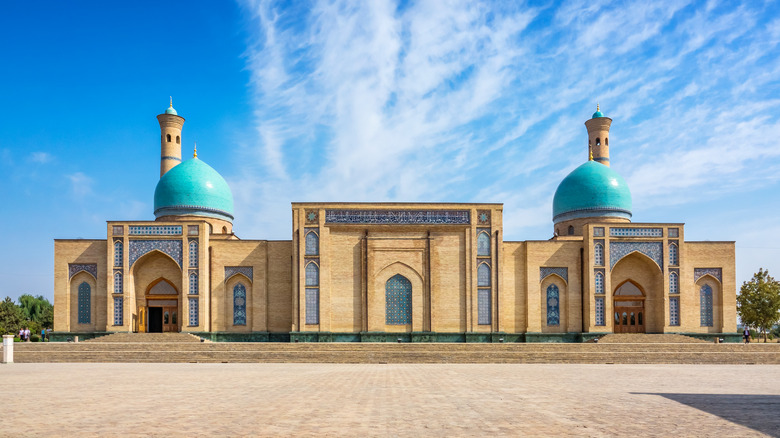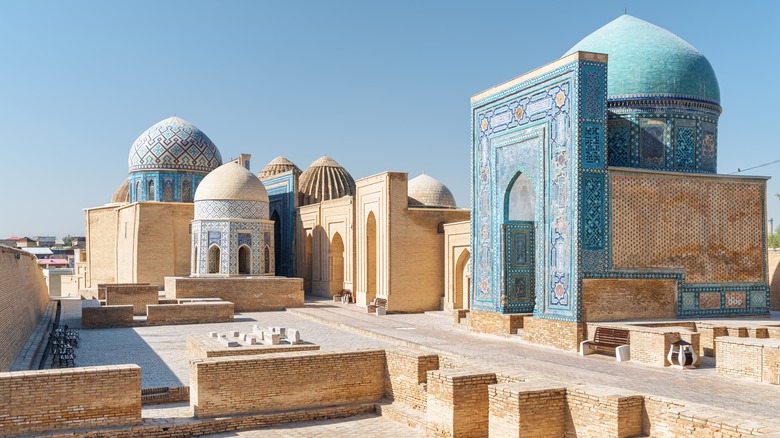Let’s face it: Times are tough right now across the board. It seems like simply stepping outside and breathing costs $50 most days, and that theory only amplifies when it comes to travel. International flight prices are rising, affordable hotels are becoming increasingly scarce, and fun vacation activities are mostly downright costly. Considering these financial constraints, it might seem discouraging, ridiculous even, to travel. However, some overseas destinations can cost a fraction of your everyday life in the U.S.
Out of all of the budget-friendly nations for Western travelers out there, Uzbekistan takes the cake. Even Drew Binsky, who has traveled to every country in the world, claims Uzbekistan is the cheapest country for Western tourists. Economic value aside, this landlocked country has verdant valleys, towering peaks, and a desert spanning 60% of its grounds. If you’re on a budget and dreaming of a vacation, consider visiting this vibrant Central Asian nation for an affordable getaway.
Average costs when traveling through Uzbekistan

So, how affordable is an average trip to Uzbekistan? Let’s start with the most essential: food, of course. Uzbek food might not be well-known in some circles, but that doesn’t mean it’s not delicious. Hearty dishes like plov, manti, Lagman, and samsa are some of the incredible meals you’ll eat on your trip. Best of all, large, filling meals can cost as little as $5 at regular eateries and up to $25 at fine-dining restaurants.
In Tashkent, the country’s capital, hotels drop as low as $12 to $25 per night. Samarkand makes a great addition to any history buff’s bucket list, thanks to the jaw-dropping beautiful sights of Registan Square and Shah-i-Zinda. Here, 4-star hotels can be available for between $20 to $30 per night.
Uzbekistan is roughly the size of California. You’ll need to plan how to go from Point A to Point B if you hope to visit more than one city. The most popular way to transit around the country is by taking the train. While there are different routes to choose from, a typical train from Tashkent to Samarkand, for example, is as low as 77,590 UZS, which translates to around $6.
How to navigate this vibrant nation

While you can certainly plan the trip independently, navigating a country with so much to explore can feel confusing and daunting. You’ll want to consider hiring a private tour company for the best bang for your buck and minimal headaches. While tours in countries like Iceland and France can sometimes be costly simply because those destinations are more expensive in general, such is not the case for Uzbekistan.
Exodus Adventure Travels, for example, has an 11-day tour offering called Uzbekistan Uncovered, starting at $2,550. This package takes you through the country and caters to your accommodation (including one night spent in a yurt; how cool is that?). It also offers transportation within Uzbekistan and activities led by expert local guides. Guided group trips are a great way for solo travelers to meet people.
If you want to do it on your own, Uzbekistan has an international airline, suitably called Uzbekistan Airways. It has direct flights from John F. Kennedy Airport in New York City (JFK) to Tashkent (TAS). To transit within the country, take advantage of Uzbekistan’s high-speed train, the Afrosiyob.

